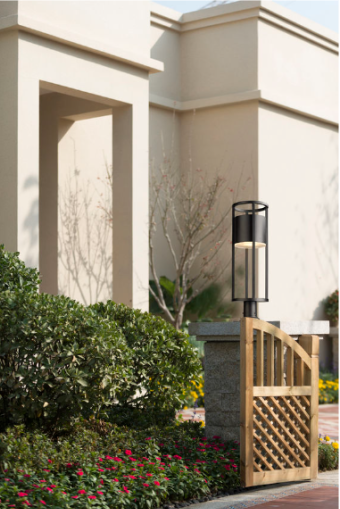In the past two decades, China's security industry has experienced remarkable growth. The market demand and the industry's GDP growth rate have consistently outpaced the national average. However, a significant challenge remains: the lack of comprehensive and reliable statistical data. This absence of accurate information hinders government decision-making, limits strategic planning for industry players, and reduces the efficiency of investments made by construction parties. As a result, the industry's development is increasingly constrained. To address these issues, the vigorous growth of the security consulting service sector has become not only necessary but also an inevitable trend with great potential.
Security consulting involves professionals who apply theoretical knowledge, industry-specific tools, and proven experience to offer expert advice and decision support to government agencies, businesses, and security system developers. These services cover a wide range of areas, including government-level policy consultation, enterprise-level strategy and operational guidance, user-level design and evaluation, and specialized audit and supervision services.
The establishment of a robust urban security system is a key priority for the Chinese government in building a safe and harmonious society. However, due to the relatively short history of the security industry in China, there is still a lack of a complete legal framework and professional research institutions. This makes it difficult to accumulate empirical data or develop professional models, leading to decisions that are often based on incomplete or insufficient analysis. This lack of data creates risks and challenges in effective decision-making.
Accurate and comprehensive data on the security industry is crucial for governments to properly assess the current state and future direction of the sector. Unfortunately, no authoritative entity in China currently provides such detailed and continuous tracking, making it harder for policymakers to manage and guide the industry effectively.
Service is at the heart of success in this industry. Unlike products, services are non-standardized and hard to measure with a single metric. Therefore, delivering high-quality service requires more than just technical expertise—it demands a deep understanding of customer needs and a commitment to excellence in every detail.
Today’s customers expect more from their service providers. They want cost-effective solutions that solve all their problems. This means security companies must offer comprehensive services—from initial consultation and product design to training, implementation, maintenance, and system upgrades. By addressing every detail in advance, companies can build stronger relationships and gain a competitive edge.
Personalization is another key factor. Services should be tailored to meet specific customer needs and reflect unique requirements. Customer satisfaction is the ultimate goal, and since perceptions vary widely, companies must focus on small details that make a big difference. Many firms now have dedicated teams to handle customized requests, ensuring that each client receives the attention they deserve.
Training is also a critical component of quality service. Even when customers don’t explicitly ask for it, providing thorough training helps ensure that systems are used effectively. Many advanced security systems fail to reach their full potential because operators lack proper skills or personnel turnover disrupts continuity. Offering comprehensive training not only enhances user experience but also strengthens long-term client relationships.
The quality of service depends on having skilled and well-trained teams. A company with strong R&D capabilities and experienced technical support can deliver reliable and efficient service. For example, some companies have established nationwide service centers and 24/7 support mechanisms to guarantee prompt assistance and maintain high standards.
According to global trends, in mature security markets, service revenue typically accounts for over 40% of total income. This suggests that the future of China’s security industry will be driven by service-based models. Fortunately, both users and integrators are beginning to recognize the value of after-sales support, and more customers are willing to pay for quality service.
In 2013, the security industry was expected to shift further toward service-oriented strategies. With product prices declining and after-sales support becoming more sophisticated, companies had to adapt. Simply selling products was no longer enough to sustain growth. Major players would face increased competition, and the market would likely see a consolidation of top-tier companies, while smaller firms struggled to survive.
Many SMEs failed due to intense competition and pressure to reduce costs. As large companies expanded their product lines and market presence, even niche sectors like home security became highly competitive. The DVR price war is a prime example—dominant companies drove down prices to unsustainable levels, forcing weaker competitors out of the market. Rising labor costs, shrinking profit margins, and declining orders made survival increasingly difficult for smaller firms.
Outdoor Post Light
An Outdoor Post Light is a type of Lighting Fixture that is designed to
be mounted on a post or pole outside of a building or in a yard or
garden. These Lighting Products are typically used to provide illumination for
outdoor spaces, such as driveways, walkways, and patios, and can also be
used for security and safety purposes.
Outdoor post lights come in a variety of styles and designs, including
traditional lantern-style lights, modern minimalist designs, and
decorative fixtures with ornate details. They are available in different
materials, such as metal, wood, and glass, and can be powered by
electricity or solar energy.
When choosing an outdoor post light, it is important to consider the
size and style of the fixture, as well as the amount of light it will
provide. It is also important to choose a Outdoor Garden Light that is
weather-resistant and durable enough to withstand the elements. The material of Outdoor Post Light is usually stainless steel, aluminum alloy and other durable materials, and the surface has been treated with anti-corrosion, sandblasting, etc., which has the characteristics of waterproof, windproof, and anti-corrosion, and is suitable for outdoor use.

Outdoor Post Light,Outdoor Lighting Fixture Post Light,Glass Garden Post Light,Modern Outdoor Post Light
Zhengdong Lighting Co., Ltd. , https://www.sundint.com
